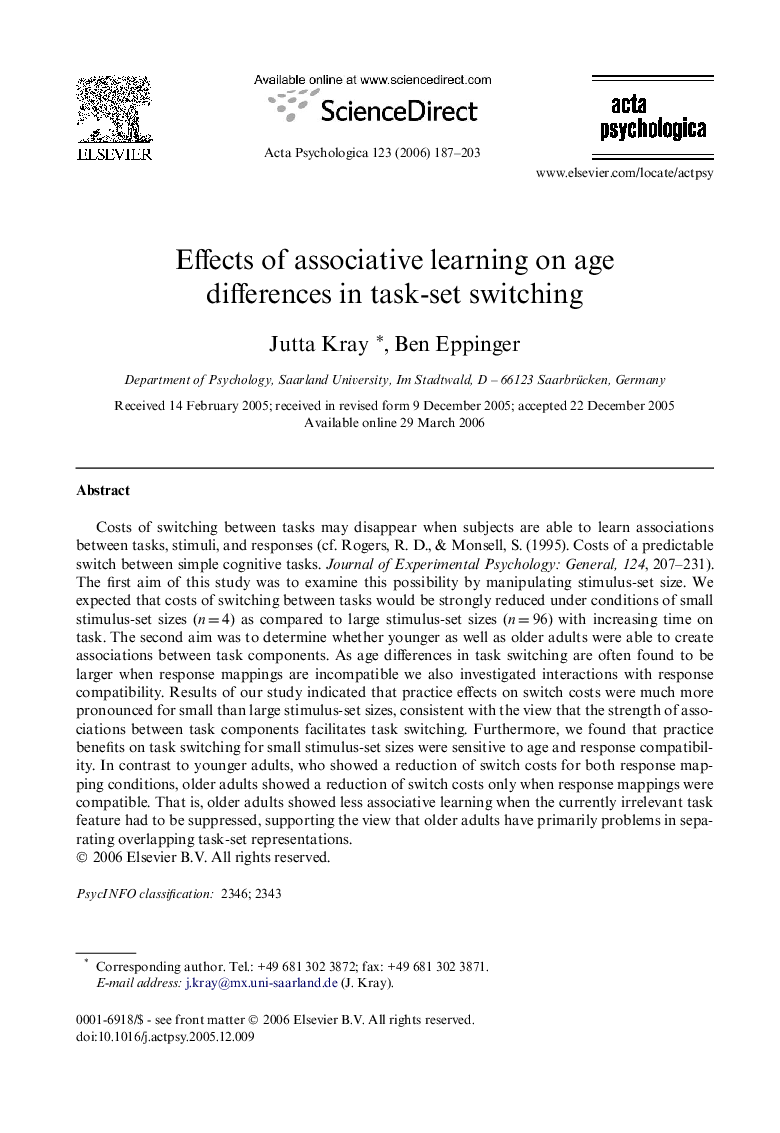| Article ID | Journal | Published Year | Pages | File Type |
|---|---|---|---|---|
| 920656 | Acta Psychologica | 2006 | 17 Pages |
Costs of switching between tasks may disappear when subjects are able to learn associations between tasks, stimuli, and responses (cf. Rogers, R. D., & Monsell, S. (1995). Costs of a predictable switch between simple cognitive tasks. Journal of Experimental Psychology: General, 124, 207–231). The first aim of this study was to examine this possibility by manipulating stimulus-set size. We expected that costs of switching between tasks would be strongly reduced under conditions of small stimulus-set sizes (n = 4) as compared to large stimulus-set sizes (n = 96) with increasing time on task. The second aim was to determine whether younger as well as older adults were able to create associations between task components. As age differences in task switching are often found to be larger when response mappings are incompatible we also investigated interactions with response compatibility. Results of our study indicated that practice effects on switch costs were much more pronounced for small than large stimulus-set sizes, consistent with the view that the strength of associations between task components facilitates task switching. Furthermore, we found that practice benefits on task switching for small stimulus-set sizes were sensitive to age and response compatibility. In contrast to younger adults, who showed a reduction of switch costs for both response mapping conditions, older adults showed a reduction of switch costs only when response mappings were compatible. That is, older adults showed less associative learning when the currently irrelevant task feature had to be suppressed, supporting the view that older adults have primarily problems in separating overlapping task-set representations.
